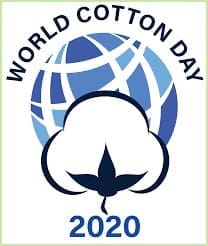Driven by widespread consumer awareness and push by the institutions and industry, the global fashion eco-system is gradually shifting from a “take-make-throw” model to a “circular” model which is more sustainable. The outbreak of COVID-19 pandemic has accelerated this transition. The textile and clothing value chain has a vast impact on the realization of UN’s 17 universally agreed-upon Sustainable Development Goals (SDG’s) due to its footprint on the economy, environment and society at large. “Responsible Consumption and Production”; “Gender Equality”; “Good Health and Wellbeing” and “No Poverty” are the key SDG’s now integrated into their business models by leading textile and garment manufacturers and fashion brands. The international fashion brands have made commitments to realize the SDG’s by 2030 by embarking on initiatives such as recycling and increasing the share of sustainably produced cotton consumed by the industry from the present 25% to 50% by 2025. India is ranked among Top 5 producers of cottons classified as “sustainable” viz BCI, Organic, Fair Trade and REEL. According to the Textile Exchange, in 2019, India’s production of such cotton had reached about 800,000 MT representing 13% share of the country’s annual cotton production of about 6 million MT. The perceived demand exceeds supply indicating tremendous growth potential.
Recognizing these mega trends and to commemorate the World Cotton Day on 7th October, Kheti Virasat Mission (KVM), Punjab and Gherzi Consultants, India have forged a partnership to make an impact on the cotton-textile industry. The collaboration between, Gherzi the renowned Swiss industrial consulting firm and KVM will foster sustainable practices across the textile value chain.
Kheti Virasat Mission was born in 2005 in Jaito town of Punjab through the efforts led by social activist Mr. Umendra Dutt. KVM intervenes at the grass root level to raise awareness about the benefits of traditional practices of agriculture that discourages the use of synthetic chemicals and is beneficial to society and environment in the long run. “Trinjan” is an extension of KVM focusing on revival of artisanal crafts in rural Punjab. The altruistic objectives of the project are women’s empowerment linked to sustainable agriculture.
Gherzi, founded in Switzerland in 1929 and with a presence of over 60 years in India, is a renowned international industrial consulting firm with a vast experience across the textile value chain. Gherzi’ clientele includes institutions and corporate private sector in pursuit of value-driven business models harmonizing the interests of various stakeholders at large. Gherzi assists its clients to align their strategies towards sustainability and digitalization.
According to Rupsi Garg, the project coordinator,” Trinjan in rural Punjab, was the space where women would traditionally gather to spin on charkhas, weave, talk, counsel, learn from each other, cook and eat together. Rapid industrialization caused this culture of community gatherings in the guise of artistic activities to wane and fade. KVM is trying to revive this culture through its project TRINJAN. It is providing women artisans a platform to rediscover their art, earn livelihood and share their wisdom apart from encouraging and educating cotton farmers to resume desi organic cotton farming”.
Elaborating on the initiative, Anup Goswami, the Gherzi project coordinator remarked that the “KVM-Gherzi collaboration will be built on three pillars. It will foster supply chain linkages between organic cotton farmers in Punjab and textile mills; market access opportunities will be created for women artisans for their handloomed products; thirdly, capacity building initiatives will be launched to inculcate best practices and improve competitiveness”. “The ‘KVM/Trinjan-Gherzi’ cooperation welcomes collaboration with the industry, international and domestic fashion and home textile brands, and multilateral development institutions to partner with the initiative”, Mr. Goswami added.

